



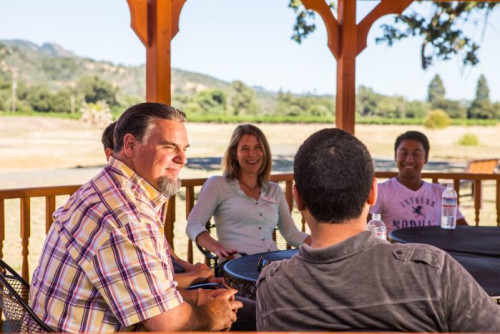




Duffy's Napa Valley Rehab
Verified Center
This provider's information has been quality-checked by Recovery.com's Research Team for accuracy and completeness, including center verification through appropriate third-party organizations.
Treatment Focus
This center treats substance use disorders and co-occurring mental health conditions. Your treatment plan addresses each condition at once with personalized, compassionate care for comprehensive healing.
Primary Level of Care
Offering intensive care with 24/7 monitoring, residential treatment is typically 30 days and can cover multiple levels of care. Length can range from 14 to 90 days typically.
Treatment Focus
This center treats substance use disorders and co-occurring mental health conditions. Your treatment plan addresses each condition at once with personalized, compassionate care for comprehensive healing.
Primary Level of Care
Offering intensive care with 24/7 monitoring, residential treatment is typically 30 days and can cover multiple levels of care. Length can range from 14 to 90 days typically.
Provider's Policy
Please call our admissions office for more information on insurance coverage. A knowledgeable member of our team can answer any financial questions you might have, and they can also reach out directly to your insurance carrier to verify and maximize your benefits. This service is free and puts you under no obligation to choose our programming.
Duffy's Napa Valley Rehab
Duffy's Napa Valley Rehab
About Duffy's Napa Valley Rehab
Nestled in the heart of upper Napa Valley, Duffy's sits on a sprawling 23-acre estate that once thrived as a hot springs resort. Since opening its doors in 1967, Duffy’s has become a beacon of hope, offering a sanctuary where over 38,000 families have embarked on recovery. The center provides a comprehensive suite of treatment options tailored to heal substance use disorders and co-occurring dual diagnoses. With programs ranging from 30 to 90 days, alongside an intensive outpatient program that delivers 9 hours of weekly programming over 8 weeks, Duffy’s blends rigorous medical expertise with the serene, healing ambiance of Napa’s natural landscape. This holistic approach ensures that every individual receives the compassionate, well-rounded care needed to foster lasting recovery.
Expert-Led, Evidence-Based Treatment
Duffy’s multidisciplinary team kindly walks alongside guests through recovery, from detox to aftercare. Each staff member seeks to make guests feel safe and cared for throughout their facility. This atmosphere, combined with Duffy’s knowledgeable treatment modalities, helps set guests at ease and prepare them for successful, lasting recovery. Both the residential and intensive outpatient programs include evidence-based therapies to address the root causes of dual diagnoses, including dialectical behavioral therapy (DBT), Seeking Safety groups, and 12-Step support. Therapy is delivered in individual, group, and family settings, and they provide medication management as needed.
Compassionate Family Program and Aftercare
At Duffy’s, the journey to recovery includes robust support and resources for families that incorporate weekend support groups, opportunities for ongoing communication with their loved one’s counselor, and dedicated family therapy sessions. These engagements provide essential information, updates on treatment progress, and collaborative planning for the eventual transition home.
From the moment treatment begins, Duffy’s emphasizes seamless discharge planning to ensure a smooth reintegration into everyday life. Guests actively participate in crafting their aftercare plans with their care team, exploring options like sober living communities, connecting with therapists, and tapping into valuable community resources. Each discharge plan is finely tailored to the individual, often incorporating participation in 12-Step groups with sponsors, or alternatives like Refuge Recovery, SMART Recovery, Celebrate Recovery, and LifeRing, providing each guest a robust support network as they progress into recovery.
Recover in Comfort And Luxury
Duffy’s in Napa Valley blends the comforts of a cozy retreat with the functionality of a comprehensive recovery center. With a flexible technology policy, guests can manage work and family commitments while enjoying a variety of amenities, including a swimming pool, tranquil walking paths, and sports courts for basketball, volleyball, tennis, and horseshoes. The facility promotes holistic healing through activities like yoga, Tai Chi, and fitness classes, complemented by leisurely options such as board games. Nutritional wellness is prioritized with three daily meals and snacks prepared by talented chefs, all designed to support the guests’ health and recovery.

Highlights from the Center
Highlights
These highlights are provided by and paid for by the center.
Pool
Medically Assisted Detox
Private Rooms Available
Tech Friendly
Center Overview
Treatment Focus
This center treats substance use disorders and co-occurring mental health conditions. Your treatment plan addresses each condition at once with personalized, compassionate care for comprehensive healing.
CARF Accredited
CARF stands for the Commission on Accreditation of Rehabilitation Facilities. It's an independent, non-profit organization that provides accreditation services for a variety of healthcare services. To be accredited means that the program meets their standards for quality, effectiveness, and person-centered care.

Duffy's Napa Valley Rehab
Insurance Accepted
Cash Pay Rates
Estimated Cash Pay Rate
Center pricing can vary based on program and length of stay. Contact the center for more information. Recovery.com strives for price transparency so you can make an informed decision.




Treatment Centers Similar to Duffy's Napa Valley Rehab in Northern California
Recovery.com Verified Listing
Recovery.com verified that the name, location, contact information and license to operate for this treatment provider are valid and up-to-date.

CARF Accredited

Licensed by California DHCS

NAATP Member
Recovery.com is an independent, third-party mental health resource. Verification does not imply endorsement and does not guarantee the quality of treatment services.
Meet Your Care Team

John Christian O’Neil
Medical Director
MD

Hide Miyamoto
Chief Financial Officer
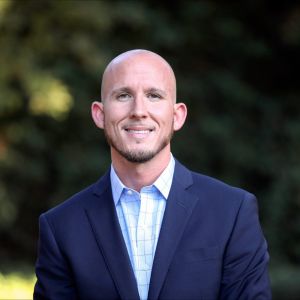
Tyler Hart
Director of Operations

Lauren Caldwell
Director of Quality and Performance Improvement

Katrina (Treen) Hickey
Clinical Lead

John Keyes
Chief Executive Officer
MBA, CADC

Tiffany Parker
Director of Human Resources

Hal Bahr
Treatment Support Manager

Yasmin Bojorquez
UM Manager
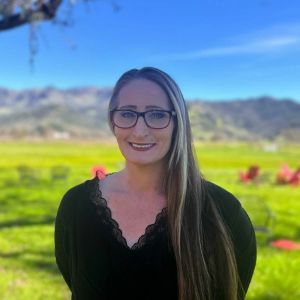
Rebecca Vaisau
Intake/Case Management Manager
CACD-CS
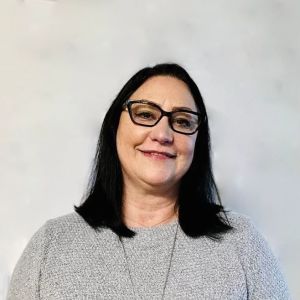
Kara Levinson
Nursing Director
RN, BSN, MBA/HCM

Matthew Berry
Nursing Supervisor
LPT

Jillian Barna-Stephenson
Director of Clinical & Outpatient Services

Jeremy Sheldon
Assistant Director of Clinical Services
LPC

Martin Lajoie
Clinical Supervisor
Psy.D.
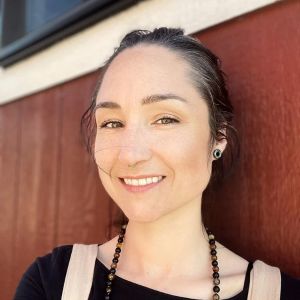
Alysha Daley
Counselor
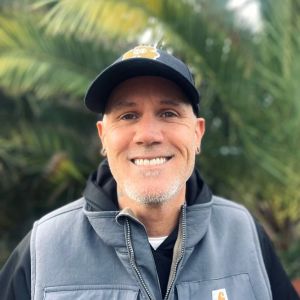
Jared De Flores
Counselor
https://lifestance.com/provider/therapist/wi/brookfield/aaron-munson/

Kelli Hare
Counselor

Mei-Wai Ng
Therapist

Rachel Smith
Therapist

Del Phoenix-Wilcox
Therapist

Liliah Ornelas
Certified Holistic Sexuality Educator, Outpatient Supervisor
CHSE, RADT
Your Care Options
Specializations
Alcohol
Using alcohol as a coping mechanism, or drinking excessively throughout the week, signals an alcohol use disorder.
Detox
Detox fully and safely removes toxic substances from the body, allowing the next steps in treatment to begin with a clean slate.
Co-Occurring Disorders
A person with multiple mental health diagnoses, such as addiction and depression, has co-occurring disorders also called dual diagnosis.
Drug Addiction
Drug addiction is the excessive and repetitive use of substances, despite harmful consequences to a person's life, health, and relationships.
Medication-Assisted Treatment
Combined with behavioral therapy, prescribed medications can enhance treatment by relieving withdrawal symptoms and focus patients on their recovery.
Veterans
Patients who completed active military duty receive specialized treatment focused on trauma, grief, loss, and finding a new work-life balance.
Who We Treat
Executives
Executive treatment programs typically directly support the needs of people who manage businesses and may provide flexible schedules and office space to allow work during treatment.
LGBTQ+
Addiction and mental illnesses in the LGBTQ+ community must be treated with an affirming, safe, and relevant approach, which many centers provide.
Midlife Adults
For adults ages 40+, treatment shifts to focus on the unique challenges, blocks, and risk factors of their age group, and unites peers in a similar community.
Veterans
Patients who completed active military duty receive specialized treatment focused on trauma, grief, loss, and finding a new work-life balance.
Treatment Services
Day Treatment
In a PHP, patients live at home but follow an intensive schedule of treatment. Most programs require you to be on-site for about 40 hours per week.
Detox
Detox fully and safely removes toxic substances from the body, allowing the next steps in treatment to begin with a clean slate.
Outpatient
During outpatient rehab, patients attend a structured treatment program while continuing to live at home.
Residential
In a residential rehab program, patients live onsite, with access to daily treatment and 24-hour care. An average stay is 30-90 days.
Approaches
Evidence-Based
A combination of scientifically rooted therapies and treatments make up evidence-based care, defined by their measured and proven results.
Family Involvement
Providers involve family in the treatment of their loved one through family therapy, visits, or both–because addiction is a family disease.
Holistic
A non-medicinal, wellness-focused approach that aims to align the mind, body, and spirit for deep and lasting healing.
Individual Treatment
Individual care meets the needs of each patient, using personalized treatment to provide them the most relevant care and greatest chance of success.
Medical
Medical addiction treatment uses approved medications to manage withdrawals and cravings, and to treat contributing mental health conditions.
Twelve Step
Incorporating spirituality, community, and responsibility, 12-Step philosophies prioritize the guidance of a Higher Power and a continuation of 12-Step practices.
Therapies
1-on-1 Counseling
Patient and therapist meet 1-on-1 to work through difficult emotions and behavioral challenges in a personal, private setting.
Rational Emotive Behavior Therapy
A type of cognitive therapy that identifies negative self-defeating thoughts and behaviors, rewriting beliefs to be positive, empowering, and present.
Art Therapy
Visual art invites patients to examine the emotions within their work, focusing on the process of creativity and its gentle therapeutic power.
Experiential Therapy
With this approach, patients heal by doing. Therapists help patients process difficult emotions to speak, using guided activities like art or dance.
Eye Movement Therapy (EMDR)
Lateral, guided eye movements help reduce the emotional reactions of retelling and reprocessing trauma, allowing intense feelings to dissipate.
Family Therapy
Family therapy addresses group dynamics within a family system, with a focus on improving communication and interrupting unhealthy relationship patterns.
Motivational Interviewing
Based on the idea that motivation to change comes from within, providers use a conversational framework to discover personalized methods for change.
Conditions We Treat
Anxiety
Anxiety is a common mental health condition that can include excessive worry, panic attacks, physical tension, and increased blood pressure.
Depression
Symptoms of depression may include fatigue, a sense of numbness, and loss of interest in activities. This condition can range from mild to severe.
Post Traumatic Stress Disorder
PTSD is a long-term mental health issue caused by a disturbing event or events. Symptoms include anxiety, dissociation, flashbacks, and intrusive thoughts.
Trauma
Some traumatic events are so disturbing that they cause long-term mental health problems. Those ongoing issues can also be referred to as "trauma."
Chemsex
Also called Party 'n' Play (PnP), chemsex refers to using drugs, like methamphetamine, to enhance sexual activity.
Substances We Treat
Alcohol
Using alcohol as a coping mechanism, or drinking excessively throughout the week, signals an alcohol use disorder.
Benzodiazepines
Benzodiazepines are prescribed to treat anxiety and sleep issues. They are highly habit forming, and their abuse can cause mood changes and poor judgement.
Chronic Relapse
Consistent relapse occurs repeatedly, after partial recovery from addiction. This condition requires long-term treatment.
Co-Occurring Disorders
A person with multiple mental health diagnoses, such as addiction and depression, has co-occurring disorders also called dual diagnosis.
Cocaine
Cocaine is a stimulant with euphoric effects. Agitation, muscle ticks, psychosis, and heart issues are common symptoms of cocaine abuse.
Drug Addiction
Drug addiction is the excessive and repetitive use of substances, despite harmful consequences to a person's life, health, and relationships.
Ecstasy
Ecstasy is a stimulant that causes intense euphoria and heightened awareness. Abuse of this drug can trigger depression, insomnia, and memory problems.
Heroin
Heroin is a highly addictive and illegal opioid. It can cause insomnia, collapsed veins, heart issues, and additional mental health issues.
Languages
Aftercare
Care Designed for Your Needs
Personal Amenities
Amenities
Special Considerations
Flexible technology policies
Centers with flexible technology policies allow professionals to stay in touch with work and give patients a greater sense of connection and normalcy.
Gender-specific groups
Patients in gender-specific groups gain the opportunity to discuss challenges unique to their gender in a comfortable, safe setting conducive to healing.
Healthy Meals are provided
Great food meets great treatment, with providers serving healthy meals to restore nutrition, wellbeing, and health.
Activities
Yoga
Yoga is both a physical and spiritual practice. It includes a flow of movement, breathing techniques, and meditation.
Off-Site Amenities

Learn More About the Center
Duffy’s Mission, Vision, And Philosophy
Learn more about Duffy's core values and how they may perfectly align with various treatment needs.
Treatment Programs At Duffy’s
Explore Duffy’s various addiction treatment programs and see answers to commonly asked questions.
Why Choose Duffy’s?
Browse through 10 reasons why Duffy’s may be the perfect choice for addiction and mental health treatment.
Medication-Assisted Treatment
Learn more about medication-assisted treatment for substance use disorders.
What people are saying
Treatment
4.3
Accommodations
4.8
Food & Nutrition
4.5
Value
4.5
Anonymous
Reviewed 05/16/16
Review from Rehabs.com
Douglas
Reviewed 07/01/15
Review from Rehabs.com
MDB
Reviewed 03/09/15
Review from Rehabs.com
Michael
Reviewed 03/09/15
Review from Rehabs.com





